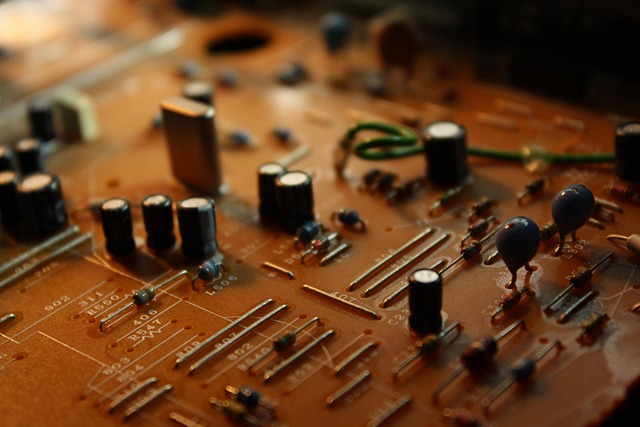Electronics Recycling Boston: Navigating Professional Disposal Services
Electronics Recycling Boston is a leading initiative in the digital era, addressing e-waste concerns through secure data erasing partnerships with IT…….
In the rapidly evolving digital landscape, the management and disposal of electronic waste (e-waste) have emerged as critical global challenges. Among the various initiatives aimed at addressing this issue, electronics recycling Boston stands out as a pioneering effort, combining technological innovation, economic viability, and environmental sustainability. This article delves into the multifaceted world of electronics recycling in Boston, exploring its definition, impact, and potential to shape a greener future. By examining historical context, global trends, economic considerations, technological advancements, policy frameworks, challenges, and successful case studies, we aim to provide an authoritative guide to understanding this vital practice.
Electronics recycling Boston refers to the systematic process of collecting, sorting, disassembling, and recycling end-of-life electronic devices to extract valuable materials and minimize environmental impact. This process involves several key steps:
The concept of electronics recycling gained prominence in the late 20th century as the rapid proliferation of electronic devices led to increasing e-waste generation. Initially, much of the recycling effort was informal and inefficient, with many toxic materials ending up in landfills. Boston, recognizing the growing problem, became an early adopter of structured e-waste management programs in the 1990s, setting a benchmark for other cities worldwide.
Over time, electronics recycling has evolved from simple scrap metal collection to a sophisticated industry involving advanced sorting technologies and material recovery processes. Today, Boston’s recycling initiatives benefit from cutting-edge facilities, innovative recycling methods, and stringent environmental regulations, ensuring that e-waste is handled responsibly and efficiently.
Electronics recycling Boston has had a profound impact on global e-waste management strategies. As one of the pioneering cities in structured e-waste recycling, Boston’s approach has influenced international policies and practices. The city’s success in implementing efficient collection systems, establishing state-of-the-art recycling facilities, and fostering public awareness has inspired similar initiatives worldwide.
The electronics recycling market is influenced by several factors, including global commodity prices, technological advancements, and regulatory changes. Boston’s recycling industry benefits from a robust market for recovered materials, such as gold, silver, copper, and rare earth elements, which are valuable inputs for manufacturing new electronic components and products.
The city has witnessed significant investment in e-waste recycling facilities, advanced sorting technologies, and material recovery processes. These investments not only drive economic growth but also create jobs, foster innovation, and promote sustainable practices. Private sector partnerships with local governments have been instrumental in funding and developing state-of-the-art recycling infrastructure.
Artificial Intelligence (AI) and Machine Learning (ML) are transforming electronics recycling through advanced sorting and material detection systems. These technologies enable faster, more accurate categorization of e-waste components, improving overall recycling efficiency. For example, Boston-based startups have developed AI algorithms that can identify rare materials within complex electronic devices, enhancing the recovery rate of valuable resources.
Closed-loop recycling focuses on recovering and reusing materials within a closed system, minimizing the need for virgin inputs. This approach is gaining traction in Boston as companies invest in advanced material recovery processes to create sustainable product lifecycles. For instance, some local manufacturers are utilizing recycled metals and plastics from e-waste to produce new electronics, reducing their environmental footprint.
The integration of IoT devices into e-waste management systems allows for real-time tracking and monitoring of recycling processes. Sensors embedded in collection bins, sorting machines, and transport vehicles provide valuable data on waste streams, inventory levels, and operational efficiency. This technology enables more informed decision-making and helps optimize recycling operations.
Boston’s electronics recycling efforts are supported by a robust legal framework, including state and federal regulations that govern e-waste management:
Stringent policies and regulations have played a pivotal role in shaping Boston’s successful e-waste recycling programs:
Boston’s Municipal Recycling Program is a comprehensive initiative that includes door-to-door collections, drop-off centers, and public education campaigns. This program has achieved remarkable success in increasing e-waste collection rates and improving recycling efficiency. By partnering with local schools and community organizations, the city has fostered a culture of responsible electronic waste management among residents. The program’s emphasis on convenience and accessibility has contributed to its high participation rates, making it a model for other cities worldwide.
A notable collaboration between Boston’s city government and a private recycling company led to the development of an innovative e-waste processing facility. This public-private partnership brought advanced sorting technologies and efficient material recovery processes to the city, significantly enhancing recycling capabilities. The joint venture also created job opportunities and generated revenue, demonstrating the potential for successful partnerships in electronics recycling.
In one of Boston’s gentrifying neighborhoods, a community-led e-waste recycling program emerged as a response to limited access to traditional collection services. This grassroots initiative involved local businesses, schools, and residents working together to organize regular collection events and educate the community on responsible e-waste disposal. The success of this program highlights the power of community engagement in driving sustainable practices.
Electronics recycling Boston represents a successful fusion of technological innovation, economic viability, and environmental stewardship. As the world grapples with increasing e-waste generation, Boston’s approach offers valuable insights and a blueprint for sustainable practices. Through robust policies, advanced technologies, and community engagement, the city has demonstrated its commitment to responsible electronic waste management.
The future prospects for electronics recycling are promising, with emerging trends and growth areas offering exciting opportunities to further enhance sustainability and efficiency. As global collaboration intensifies, Boston’s role as a leader in this field will continue to shape the direction of international e-waste management efforts. By embracing technological advancements, fostering public awareness, and encouraging strategic partnerships, the city solidifies its position as a pioneer in the circular economy and environmental stewardship.
Q: What is electronics recycling Boston?
A: Electronics recycling Boston refers to the organized process of collecting, sorting, and recycling end-of-life electronic devices to recover valuable materials and minimize environmental impact.
Q: Why is electronics recycling important?
A: Electronics recycling is crucial for reducing e-waste, a growing global challenge. It helps protect the environment by preventing toxic substances from entering landfills and conserves natural resources by recovering valuable materials for reuse.
Q: How does Boston compare to other cities in terms of electronics recycling?
A: Boston is recognized as a leader in structured e-waste management, having implemented efficient collection systems, advanced recycling facilities, and stringent environmental regulations, setting a benchmark for other cities worldwide.
Q: What are some common materials recovered through electronics recycling?
A: Common materials recovered include precious metals (gold, silver, palladium), rare earth elements, plastics, glass, and various types of circuitry components, all of which can be reused or recycled into new products.
Q: How does electronics recycling impact the local economy?
A: Electronics recycling creates jobs, generates revenue from material sales and recycling fees, fosters innovation in recycling technologies, and promotes sustainable practices, contributing positively to Boston’s local economy.

Electronics Recycling Boston is a leading initiative in the digital era, addressing e-waste concerns through secure data erasing partnerships with IT…….

Boston's same-day electronics recycling services offer a convenient and eco-friendly way to dispose of electronic waste responsibly, catering to…….